15 Simple Phrases to Make You Sound More British
👇 Take this lesson with you! 👇
Table of Contents
Why try and sound British?
If you want to sound more British, then these 15 phrases, typically only used by British people, will help you.
Now just to be clear, you actually don’t need to try and sound like a British person.
You can be an effective and confident English speaker using a mix of American, British, Irish, Canadian and Australian phrases and accents.
You can even have a local accent (from your country) and still be a great communicator in English.
That said, these phrases can be extremely useful if you are living in, or going to live in, Great Britain.
They will help you better understand the local people.
Also, because many of these phrases are what we call slang (informal expressions used in a certain place), they can be used to surprise, create humour and build a connection with local people.
What’s more, these phrases will help you understand British films and TV series like Killing Eve, Sherlock, After Life, The Split and many more.
Warning: If you are preparing IELTS, do not use these phrases in the IELTS Speaking test. They are slang. You should use informal speech, but not slang!
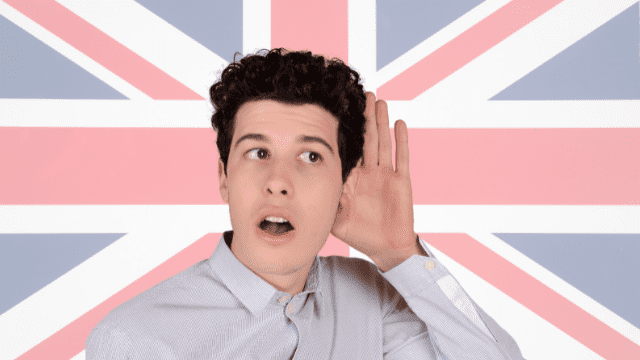
Can you understand British English?
So, here is a challenge for you.
Watch the video clip below, and tell me how much of this British conversation you can understand.
Maybe 20%, 60% or even 90%?
Let me know in the comments section below!
Click arrow to open/close tapescript A: Hiya B: Alright? A: How’s tricks? B: Mustn’t grumble A: Fancy going out for a beer? B: Sure, what’s the occasion? A: I passed my IELTS exam… B: Really? A: Yeah, it was a doddle, I’m chuffed to bits B: That’s wicked, well done. A: Nah, actually I’m having you on. I made a pig’s ear of it. And I’m gutted B: Oh well, never mind. Go and join the Keith Speaking Academy, and Bob’s your uncle! A: Maybe, anyway, after all the stress, I’m knackered. I need to get some shut eye. B: I can imagine. Well, catch up soon A: Cheers B: Ta ra
Now let’s have a look at all the different phrases that came up in this conversation.
I will show you other similar, more common phrases, as well as some synonyms, and give you some clear explanations of the meaning and usage of these phrases.
How do you greet people in British English?
The most common greetings in English are
A: Hello!
B: Hi!
But, in many parts of Britain, we also use the following with friends and family
A: Hiya
B: Hiya
This is pronounced the same as ‘higher’
A very common greeting is ‘alright’ and is actually used as a question, and the response is the same word! It probably means ‘are you alright?’ but we just use it to mean ‘hello’.
A: Alright?
B: Alright?
After saying ‘hello’, most people then ask the following, which is probably the most common greeting;
A: How are you?
B: Fine, thanks
In addition, in very informal situations we often use the following instead,
How’s it going?
How are you doing?
How’s tricks?
And the answer in British English is often very calm and underwhelming, such as,
Not bad
Can’t complain
Mustn’t grumble
Same old, same old
- To grumble = to complain

How to invite someone in British English
Of course the most common way to invite people to something or to do something is to say,
- Would you like a _____?
- Would you like to _____?
For example,
Would you like a coffe?
Would you like to go out for a drink?
In British English, we also use the word ‘fancy’ which can mean to like someone (and find them attractive) and also to feel like something or doing something. In this case of inviting, we are using the second meaning.
Fancy a coffee?
Fancy going out for a drink?
Notice: We often drop ‘do you’ in questions like this. This is a form of ellipsis
Different ways to say ‘easy’ in British English
We have the following great idiomatic expression in English, to say something is easy;
- It’s a piece of cake
A more slang word used in Britain is ‘a doddle’. This is often used to talk about an activity such as an exam, or a skill.
That exam was a doddle, I am sure I have passed.
I find cooking an absolute doddle
Expressions to talk about being happy
When it comes to being happy, there are so many words and idiomatic expression for this, especially to say you are very happy. The more common ones are,
- I’m delighted
- I’m over the moon
- I’m thrilled
- I’m thrilled to bits
A British slang word for this is ‘chuffed’ or ‘chuffed to bits’. For example,
I’m chuffed that I passed that exam
I am chuffed to bits that you have come to visit me
Joking in British English
Likewise, there are many ways in general English to say you are joking. Here are the common ones;
- I’m joking,
- I’m kidding
- I’m pulling your leg.
A more British phrasal verb for this is ‘to have someone on’. For example,
I am not really getting married. I’m just having you on.

Phrases to say you are ‘unhappy’
We have talked about being happy and joking, but what about the opposite?
Well, common synonyms of being unhappy about something are,
- I’m upset
- I’m down
- I’m down in the dumps
A common British slang word for being unhappy and also disappointed is ‘gutted’. For example,
I failed my exam. I was so sure I would pass, so I’m really gutted
Sometimes, the reason we are unhappy is that we have made a mess of something, such as an exam or even cooking a dish, or indeed any activity that hasn’t gone well.
A nice idiomatic and slang expression for this is ‘to make a pig’s ear of something’, as in the example below,
I was trying to paint a sunset, but it looks terrible, I made a pig’s ear of it.
Why do British people say ‘Bob’s your uncle’?
- There you are!
- There you have it!
- Voila!
So, don’t worry, next time, just study hard, be patient, and Bob’s your uncle.

Different ways to say ‘I’m tired’ in British English
- I’m exhausted
- I’m beat
- I’m worn out
I don’t really want to go out tonight, I’m too knackered. I think I will stay at home.Of course, if you are tired, you need to rest. These are common expressions and synonyms for this;
- To get some rest
- To have a rest
- To have a sleep
- To have a siesta
- To have a nap
- To have a kip
- To have forty winks
- To have a snooze
- To get some shuteye
How do the British say goodbye?
In general English, you can say goodbye with any of the following phrases,
- See you later
- Catch you later
- Bye
- See you now
- Take care
In Britain, we also use the following more slang expressions.
- Cheers
- Cheerio
- Ta ra
- Ta ta
So there you are, lots of expressions that British people use, and that can help you better understand British people as they really speak.
Let me know in the comments below which was your favourite expression, or any other British expressions you know!
Improve your Speaking Skills with this Free Course
Crack IELTS Speaking Part 1
Learn to Speak with Confidence in Part 1 of Your IELTS Test!
⭐️⭐️⭐️⭐️⭐️
‘It’s such a great course. I’ve learned so many usages for speaking part 1.’
Zu Htet

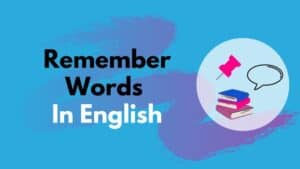
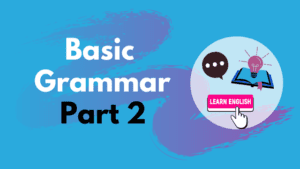
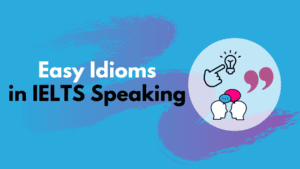

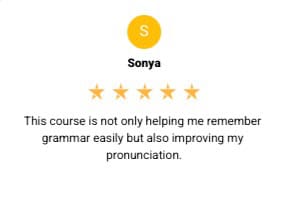
4 thoughts on “15 Simple Phrases to Make You Sound More British”
Thanks, Keith, for your wonderful lesson. I followed you for Donkey’s year, and I learned a lot from you. Actually, I love the way you produce lesions.I wish your good health. By the way, I got a 7 in IELTS speaking, just following you.
Thanks for learning with me and so pleased you got your IELTS 7!
Hi, Keith!
It seems that the link to download is not correct. Once in this page https://keithspeakingacademy.com/simple-english-phrases-help-you-sound-more-british what downloads clicking on “Download now” above is “Advanced-Vocabulary-for-IELTS-Speaking.docx.pdf” but not “15 Simple Phrases to Sound More British”.
Thank you in advance, your videos are amazing!
Pingback: 15 Simple Phrases to Make You Sound More British